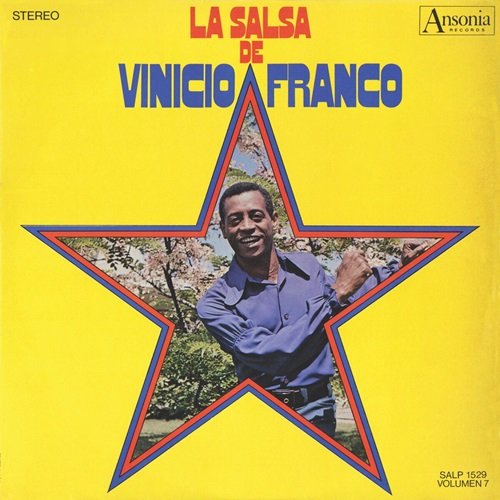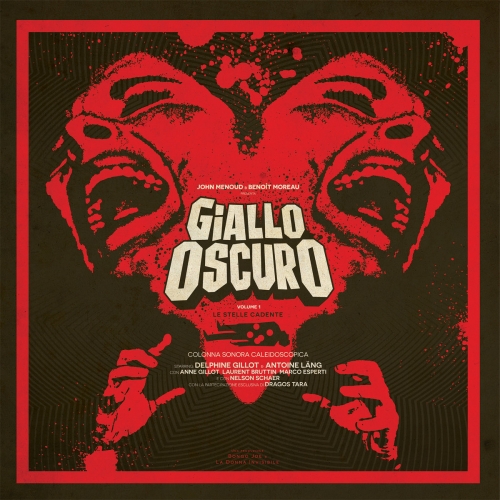Anouar Brahem - Le pas du chat noir (2002) CD-Rip
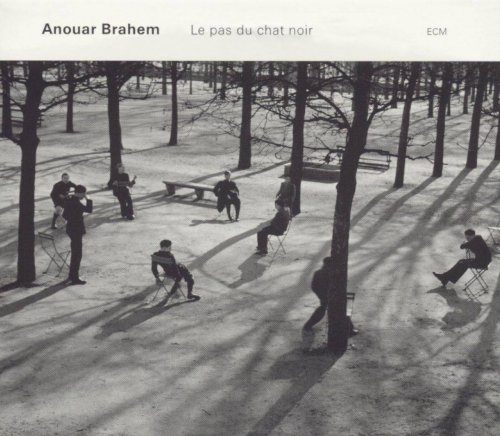
Artist: Anouar Brahem
Title: Le pas du chat noir
Year Of Release: 2002
Label: ECM
Genre: Jazz, Contemporary Jazz, World Fusion
Quality: FLAC (image+.cue,log,scans)
Total Time: 01:10:36
Total Size: 257 Mb
WebSite: Album Preview
Tracklist: Title: Le pas du chat noir
Year Of Release: 2002
Label: ECM
Genre: Jazz, Contemporary Jazz, World Fusion
Quality: FLAC (image+.cue,log,scans)
Total Time: 01:10:36
Total Size: 257 Mb
WebSite: Album Preview
1. Le Pas du Chat Noir - 7:51
2. De Tout Ton Cœur - 7:38
3. Leila au Pays du Carrousel - 6:33
4. Pique-nique à Nagpur - 4:11
5. C'est Ailleurs - 8:02
6. Toi qui Sait - 5:56
7. L'arbre qui Voit - 6:07
8. Un Point Bleu - 1:44
9. Les Ailes du Bourak - 4:52
10. Rue du Départ - 6:00
11. Leila au Pays du Carrousel (Variation) - 5:36
12. Déjà la Nuit - 5:1
Personnel:
Anouar Brahem - oud
François Couturier - piano
Jean Louis Matinier - accordion
Oud virtuoso and composer Anouar Brahem returns to ECM with an inspired trio. In the company of pianist François Couturier and accordionist Jean-Louis Matinier, he emerges more as guiding wind than guiding light, forging a quietly original program that feels at once unprecedented and timeless. Brahem’s writing is especially intuitive on this outing, teetering from stream-of-consciousness currents to insightful themes in the steady arc of a summer fan.
Le pas du chat noir brings a desert’s clarity to the night air, exposing an intricate carpet of stars against cloudless sky. The color schemes are simple, but their constellations sway with deep mythology. The opening title track lacquers a table for all the puzzle pieces that follow: raindrops turned images, fragments of a whole. As in the concluding “Déjà la nuit,” its surface trembles ever so slightly from the weight of a nearby spirit’s footsteps. Of this small mountain of twelve pieces, “Leila au pays du carrousel,” which appears once properly and again in variation, is the apex. Its arpeggios tip a quill’s inkwell, pregnant with potential words. Accordion and piano configure every fractal edge, a galaxy in miniature. With their turning comes forgiveness, the unerring stare of divinity that clasps its fate around all life and breathes until it shimmers. A Philip Glass-like ostinato from Couturier lends similar regularity to “Les ailes du Bourak,” forming with the others a caduceus of song. Both tunes reveal a distinct new edge to Brahem’s instrument. Be it an effect of the playing or the engineering, its tone is prominently exposed—all the more wondrous when one considers just how shadowy Brahem’s presence is throughout. He lifts the veil, only to reveal another, this made of refraction, prisms of selfless, creative spark.
Notable also are Brahem’s duets. With Couturier he achieves clearest solidarity in “De tout ton cœur,” while in “Pique-nique à Nagpur” he and Matinier skip through the album cover’s trees, their shadows pulling the sky like an eyelid, neither sleeping nor awake. Couturier casts lighter magic in “C’est ailleurs” (which, with its broad strokes and intimate pairings, says much with little) and reads the ether like a sacred book of Gurdjieff in “Toi qui sait.” Such are the nomadic ways of these travelers, each evoking a staggering range of topographies in his fleet passage. As in the first high notes of “L’arbre qui voit,” their leaves fall in slow motion, blown from settlement to settlement in search of a branch.
All the above being said, I might not recommend this as your first Brahem experience. A cup of tea at the Astrakan Café might be in order before taking a stroll down this leisurely, though undeniably beautiful, thoroughfare.
Le pas du chat noir brings a desert’s clarity to the night air, exposing an intricate carpet of stars against cloudless sky. The color schemes are simple, but their constellations sway with deep mythology. The opening title track lacquers a table for all the puzzle pieces that follow: raindrops turned images, fragments of a whole. As in the concluding “Déjà la nuit,” its surface trembles ever so slightly from the weight of a nearby spirit’s footsteps. Of this small mountain of twelve pieces, “Leila au pays du carrousel,” which appears once properly and again in variation, is the apex. Its arpeggios tip a quill’s inkwell, pregnant with potential words. Accordion and piano configure every fractal edge, a galaxy in miniature. With their turning comes forgiveness, the unerring stare of divinity that clasps its fate around all life and breathes until it shimmers. A Philip Glass-like ostinato from Couturier lends similar regularity to “Les ailes du Bourak,” forming with the others a caduceus of song. Both tunes reveal a distinct new edge to Brahem’s instrument. Be it an effect of the playing or the engineering, its tone is prominently exposed—all the more wondrous when one considers just how shadowy Brahem’s presence is throughout. He lifts the veil, only to reveal another, this made of refraction, prisms of selfless, creative spark.
Notable also are Brahem’s duets. With Couturier he achieves clearest solidarity in “De tout ton cœur,” while in “Pique-nique à Nagpur” he and Matinier skip through the album cover’s trees, their shadows pulling the sky like an eyelid, neither sleeping nor awake. Couturier casts lighter magic in “C’est ailleurs” (which, with its broad strokes and intimate pairings, says much with little) and reads the ether like a sacred book of Gurdjieff in “Toi qui sait.” Such are the nomadic ways of these travelers, each evoking a staggering range of topographies in his fleet passage. As in the first high notes of “L’arbre qui voit,” their leaves fall in slow motion, blown from settlement to settlement in search of a branch.
All the above being said, I might not recommend this as your first Brahem experience. A cup of tea at the Astrakan Café might be in order before taking a stroll down this leisurely, though undeniably beautiful, thoroughfare.
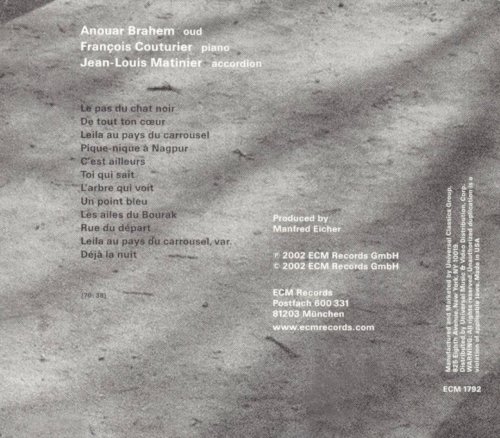
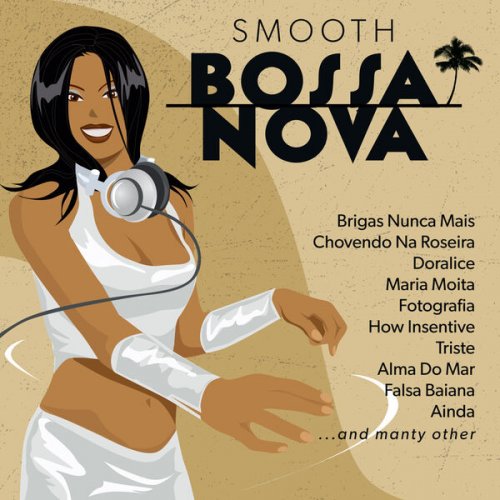
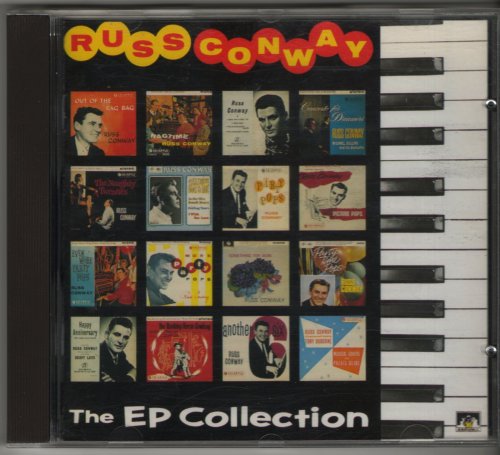

![Mateus Asato - ASATO (2026) [Hi-Res] Mateus Asato - ASATO (2026) [Hi-Res]](https://www.dibpic.com/uploads/posts/2026-02/1772112407_egqdz3e9dom2b_600.jpg)

![VA - From the Archive Vol. 3... compiled by Volcov (2026) [Hi-Res] VA - From the Archive Vol. 3... compiled by Volcov (2026) [Hi-Res]](https://www.dibpic.com/uploads/posts/2026-02/1772033794_a3743742618_10.jpg)
